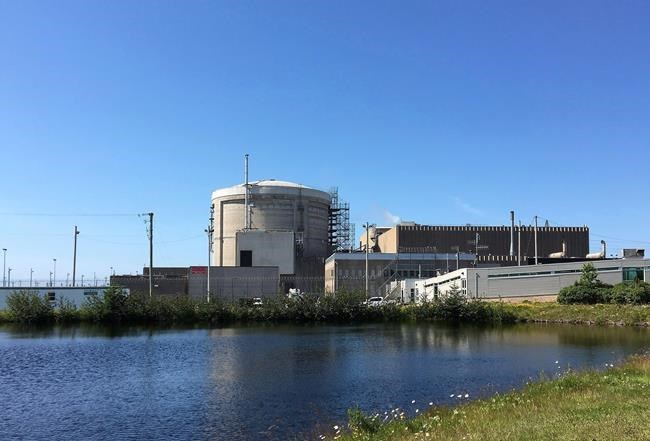FREDERICTON — New Brunswick's auditor general says NB Power needs to make reducing its $4.9-billion debt a priority, adding that credit rating agencies are taking notice of the utility's liabilities.
Kim Adair-MacPherson tabled two volumes of her annual report Tuesday as she appeared before the legislature's public accounts committee. She said NB Power has the highest debt-to-equity ratio of all government-owned utilities in Canada.
"NB Power was financed 94 per cent by debt in 2020," she said.
Adair-MacPherson said she has "serious concern" about the utility's repeated failure to meet debt-reduction and income targets. "NB Power has planned major capital projects estimated to cost at least $4 billion, so potentially NB Power's debt could double in the coming years," she told the committee.
Those projects include $2.7 billion to $3.7 billion to extend the life of the Mactaquac Dam, $84 million for the Belledune generating station and $93 million for the Coleson Cove generating station.
Adair-MacPherson told a virtual news conference later in the day that credit rating agencies are taking notice of the utility's high debt load. "The rating agencies state NB Power as the province's largest contingent risk. Sustainability of NB Power will be a concern whether it's the ratepayer or the taxpayer who ends up footing the bill," she said.
Adair-MacPherson said NB Power has reduced debt by an average of $20 million per year since renovations to the Point Lepreau nuclear power plant were completed in 2013. However, she said, the utility would have to reduce debt by $65 million per year to meet its 2027 target.
Reducing debt to that extent is possible if management at the utility makes it a priority, she added.
Responding to the auditor general Tuesday, NB Power said it takes very seriously its responsibility to operate its facilities "in a safe, reliable and economically sustainable manner."
"NB Power remains committed to meeting its mandated debt-to-equity target by 2027," the utility wrote.
The utility added that significant portions of its costs remain outside its control, such as fuel prices, electricity market prices and weather.
Adair-MacPherson told the committee that NB Power's revenue over the last four years was $195 million less than what the province had expected it to be, adding that inaccurate forecasting by the utility has helped prevent it from reducing debt more quickly.
Interim Liberal Leader Roger Melanson said Tuesday that when he was finance minister, NB Power's income forecast was never on target. "There needs to be more focus on financial management and management around the debt," Melanson said.
People's Alliance Leader Kris Austin said someone needs to be held accountable for NB Power failing to meet its financial targets.
Also in her report, the auditor general was critical of the provincial government for failing to address the demand for nursing homes. "In my view, the province is failing to address the nursing home capacity demand. The province is not ready for the increase in seniors requiring placement in a residential facility," she said.
Adair-MacPherson said although some capacity has been added, there remains a long wait-list for nursing home placements, which she said is causing pressure on hospitals and increasing costs.
"The senior population of New Brunswick aged 75 and older is expected to double over the next 20 years," she said in her report. "Failing to implement nursing home plans and obtain needed services for seniors will result in a crisis."
She also took aim at the Health Department's electronic medical records system, which she said has been expensive and adopted by fewer than half the province's doctors. Adair-MacPherson said the government took a hands-off approach to the program's funding and implementation and did not exercise adequate oversight.
As a result, she said, the province did not get the intended benefit after spending more than $26 million on the project.
This report by The Canadian Press was first published Feb. 23, 2021.
Kevin Bissett, The Canadian Press



